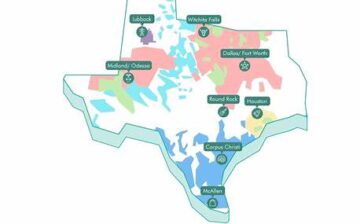
According to the American Moving and Storage Association, the cost of a local move is $2,300. Meanwhile, if it is an interstate move, you can expect to pay around $4,300 to move. If you are relocating internationally, you need to think about additional costs like shipping and duties. When combined, these hidden moving costs like deposits, furniture, and hiring costs for movers can easily add up.
Unfortunately, the costs of moving are often overlooked by many Americans when moving to a new home. Whether you’re moving to the big city or swapping shorelines for another country, thinking ahead with your finances for moving can make the process a lot easier – and cheaper. Here’s what you need to know about funding your dream move.
Start With Creating A Moving Budget
Moving is one of the most stressful life events you may experience. In a past OnePoll survey, 45 percent of Americans said that moving was the most stressful event in their lives. With a long moving checklist and lots of things to accomplish in a short time, it’s easy to lose track of your finances during a move.
The problem with this is that losing track of your financial planning during a move often leads to unplanned costs or poor financial decisions. This is where a moving budget comes in handy. It lets you keep track of where you’re spending your money and helps you spot any savings you could make.
When creating your moving budget, start with deciding what you will be moving first. Will you be bringing the furniture with you from your old home? A great way to approach this is by doing a room-by-room inventory. Separate your belongings into three groups: moving with you, getting rid of, and charity.
It also helps to outline your moving budget, separated into professional moving tasks and self-moving tasks. If you want to minimize costs, think of items that you can ask friends to help you move instead of professional movers. Finally, don’t forget to create a built-in contingency into your moving budget. Unplanned costs are bound to pop up. This way, you know you can afford it without turning to high-cost credit.
Get Yourself A Financial Check Well Ahead Of Moving
If you plan to buy a home, you may need to think about qualifying for a mortgage or refinance. Along with having the required down payment for your home, you will need to ensure your financial background is in the best shape before applying for financing from a bank or lender. This includes getting your credit score in a good place and reassessing your current spending habits to ensure you can afford the move.
To give yourself a financial check, begin with your current budget. If you need help getting all your accounts, income, and bills in one place, a money management app like Yolt or You Need A Budget can be helpful. They bring together all of your income and expenditures in one place so you can get a clear view of your financial position each month.
Can you comfortably afford mortgage/rental costs each month and the costs of moving? The next step is to take a look at your outstanding debt. If you have high-interest debt, it may be worth paying it down so that you have more spending power to put toward a mortgage. Also, everyone should check their free credit report with the three credit reporting agencies. While the acceptable credit score for mortgage approval varies according to the lender, the average credit score hovers around 731.
If You Need Financing, Weigh Your Options Based On Repayment And Interest Costs
Once you are aware of your moving costs, it’s time to think about how you will pay them. One option is to use your savings. However, if you’re short of cash and need to rely on financing for your move, be sure to shop around. Credit cards may be the most convenient way to pay for moving deposits or new furniture, but they are not always the cheapest option.
If you’re looking for a home mortgage or financing for home renovations, take a look at the different types of home loans like an FHA mortgage or home equity loans. These mortgage loan options will have lower interest rates than credit cards and are suited to high costs like the cost of buying a home.
Research Low Downpayment Programs For Help With Home Costs
If you’re itching to move but haven’t saved up enough for a deposit, you can also get help from one of the current low downpayment mortgage programs.
Most homebuyers believe they need at least a 20 percent downpayment to qualify for a mortgage. However, programs like the FHA loan and HomeReady mortgage carry a much lower deposit requirement. For the FHA loan program, you are only required to put down 3.5 percent of the house cost while the HomeReady mortgage asks for 3 percent down.
There are also home financing options where you are not required to pay any deposit like the VA loan and Navy Federal Credit Union mortgage. However, like all other programs, they carry strict eligibility criteria like membership in the military. If you will be renting and need help with a rental deposit, RentAssistance.us is an excellent website for finding rental assistance programs from charities and non-profit organizations.
Repurpose And Upcycle Where You Can
To keep the costs of moving down, get creative with your expenses. If your new home requires furniture and décor, don’t be afraid to check out second-hand stores and websites like Preloved and Pamono.
Another option is to reuse items from your previous home and add some DIY touches to give them an overhaul. Whether it is a sentimental piece you have in storage or a beloved piece of furniture given to you by a family member, you can upcycle it with a lick of paint, stenciling, and new hardware. You will also save yourself the cost of purchasing new furniture by doing this.
However, be clear on whether you want to upcycle your furniture before booking it with professional movers. Otherwise, you could be paying for the transport of furniture you do not intend to use in your new home.
Chasing your dreams and taking on a big move doesn’t have to put pressure on your finances. Planning ahead and being financially prepared for your move means that you can focus on the adventure and excitement that comes with a move – and not the money worries.
We hope you found this blog post Three Strategies to Help You Fund Your Dream Move, useful. Be sure to check out our post What I Wish I Knew When I Moved for more great tips!
Have Experience in the Moving Industry? Want an Additional Income Stream? Work With All Around Moving!
Start a profitable business and work from anywhere. We provide everything you need. Click here to learn more.





